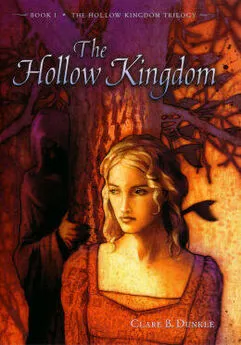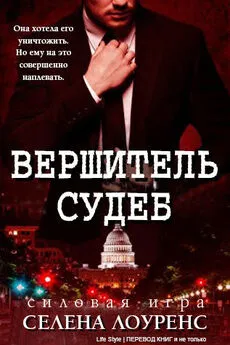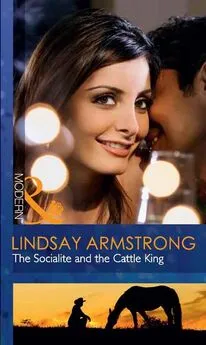Dewey Lambdin - The King`s Commission
- Название:The King`s Commission
- Автор:
- Жанр:
- Издательство:неизвестно
- Год:неизвестен
- ISBN:нет данных
- Рейтинг:
- Избранное:Добавить в избранное
-
Отзывы:
-
Ваша оценка:
Dewey Lambdin - The King`s Commission краткое содержание
1782 First officer on brig o'war . . . Fresh from duty on the frigate Desperate in her fight with the French Capricieuse off St. Kitts, Midshipman Alan Lewrie passes his examination board for Lieutenancy and finds himself commissioned first officer of the brig o'war Shrike. There's time for some dalliance with the fair sex, and then Lieutenant Lewrie must be off to patrol the North American coast and attempt to bring the Muskogees and Seminoles onto the British side against the American rebels (dalliance with an Indian maiden is just part of the mission). Then it's back to the Caribbean, to sail beside Captain Horatio Nelson in the Battle for Turks Island. . . .Naval officer and rogue, Alan Lewrie is a man of his times and a hero for all times. His equals are Hornblower, Aubrey, and Maturin--sailors beloved by readers all over the world.
The King`s Commission - читать онлайн бесплатно полную версию (весь текст целиком)
Интервал:
Закладка:
"Apalachee scout over there," McGilliveray whispered, coming to Lewrie's side. "I shall go speak to him."
"Is that wise?" Cowell asked, almost prostrate with exhaustion, though he had not done a lick of work since plunking his posterior on a thwart the night before. Alan thought it comical to see how McGilliveray had tricked Cowell out in breech-clout, leggings, moccasins and calico checkered shirt, with a turban of his own, like a maggot done up as a man. He could not have fooled a European at a hundred yards, and any Indian running across him would have asked him how fast the pitch was at the new Lord's cricket grounds.
"We have to let them know who we are eventually, sir," McGilliveray said. "They saw us land, tracked us up-river. I had hoped we would make contact with them last night. It's only polite, seeing as how we've crossed most of their territory already."
"If this is the best real-estate they have, they're welcome to every bloody stick of it," Alan griped.
McGilliveray stood up and waved an arm, calling out in his odd language, and from where Alan thought only a mosquito could live, up popped a full half-dozen savages, dressed in breech-clouts and tattoos only, bearing long cane bows and arrows. McGilliveray took off his moccasins and waded across a shallow slough of weeds and reeds to converse with them.
"They don't look like Rousseau's noble savages, do they, Mister Cowell?" Cashman asked, coming to join them as they stood idly by watching the parley.
"Look how lithe and tall they are, how nobly they bear themselves, sir," Cowell disagreed softly. "One does not need much clothing in such climes. Mankind, reduced to Eden, without a houseful of possessions and gew-gaws, with no prating philosophies to occasion rancor, shorn of metaphysics, of confusing science. They are a handsome folk, you'll not be able to deny. All pretensions of society cast aside, and relying on Nature and our Creator and their native wit for sustenance. You may speak of barbarity, of quick anger and bloody-handed murther, but has Mankind, in all our wisdom, gone far beyond those passions for all our supposed improvements, Captain Cashman?"
"We don't kill quite so openly and easily, sir," Cashman replied.
"Life, in all its facets, is closer and more personal with them, sir. They are not like us, but we were once much like them, and still are, in many ways yet. The brave man slays with a sword, the coward with an invitation to tea, if I may paraphrase the quotation, ha ha."
"I've never been scalped at a cat-lapping," Alan quipped. "Fucked with, God yes, and damned proud of it, mind."
"We are in luck, Mister Cowell," McGilliveray told them when he returned. "There are Seminolee a few miles ahead of us, in a spring camp to fish. Lots of horses."
"Any Spanish?" Cashman pressed.
"None seen this far inland in weeks. Some parties passed north of the swamps and crossed the rivers heading west a few days ago," McGilliveray/White Turtle grunted, having seemingly given up the act of smiling for the duration. "A company of horse, and one of foot, with baggage train. But they were busy driving stolen cattle they took from British colonists far off to the east."
"According to this map, there is a small stream that leads to the Apalachicola River," Alan pointed out, folding out their large chart. "How deep is it? This one that leads west and nor'west."
"Very shallow. Dugout canoes have trouble there," their guide said, after peering at the map, and at Lewrie. "Another change, Mister Lewrie?"
"We've made good time by water so far, why change bets now?" Alan replied, mopping his face with a kerchief. "If it goes our way."
"Best we continue on north." White Turtle scowled, pointing in that direction with a chin jutted over his shoulder. "This river bends easterly to the lake. Where the lake begins we find horses. Leave the boats, and a guard over them."
"Damn, splitting our party again," Cashman spat. "What's odds these Apalachee, or your relatives the Seminolee, would keep them safe for us. For a share of the profits, of course."
"If the Seminolee want something, they take it." He shrugged.
"Well, they can't make off with anything big as a launch and a gig, can they?" Alan japed. "I saw something up at Yorktown, a set of poles lashed together from a horse so it could drag, instead of carry a load. We could take the rations, masts, oars, everything on the drag behind one horse. I assume we'll march? Right, then. We haul the boats ashore and hide them from the Spanish at least. Then if they rip out the thwarts, we may still make new ones later. Wrap everything else up in the sails and shroud lines, which we can't easily replace."
"You are a paragon, Alan," Cashman beamed. "I'd never have ever thought of anything like that. See how fortunate we are, Mister Cowell, how well the Admiralty has provided for you?"
"Let's simply be on our way. It's stifling in these swamps," Cowell fluttered petulantly.
"Right you are, then. Off we go. Andrews? Back into the boats."
They began to get back aboard, but several of the men from the launch shrank back in fear and scrambled back ashore quick as they could.
"They's a bloody snake , Mister Lewrie, sir!" one of the hands yelped.
"Well, kill it and let's go."
"No!" McGilliveray shouted. "Never kill a snake! Bad luck with my people!"
"Wot're we s'posed ter do wifem, 'em, kiss 'em an' tuck 'em inna bed'r somefin'?" one of the older men muttered loud enough to hear.
"I do it. They're poisonous," McGilliveray offered, and climbed into the boat, using a long club to lift the snake out and toss it over the side, after greeting it in Muskogean.
"Notice how his speech is getting more pidgin as we go?" Cashman noted before they shoved off.
"Yes, I had. Must be getting back into the mood of his people," Alan replied.
"Perhaps," Cashman whispered, rubbing his nose. "Perhaps."
After camping at the lake shore with the party of Seminolee men, they started out at first light after a dip in the water and a quick breakfast. The Seminolee had provided some rather good horses, and had known what Alan was driving at when he described a drag. With some of the trade goods left behind, and at least the promise that the boats would be left undisturbed, there was nothing for it but to proceed.
Once out of the swamps, the land opened out into grassy meadows almost like park land, where the heat was not so oppressive and the gentle winds could cool them on their march. It was early January, and the skies were cloudier than before, promising rain.
With a pair of cotton stockings on, rolled down to the ankle, Alan found moccasins rather comfortable to march in. They went in a single file, with soldiers and sailors gathered round the pack-horses, and Seminolee out on the flanks and rear, with a scout out ahead.
"Great warrior, the Raven," White Turtle said, pointing with his chin to the head of the column. "The bravest man. He gives call of a raven if he sees trouble. To the left, the Wolf."
"Who howls, I presume?" Alan replied, meaning to be civil.
"To the right, the Owl, who will hoot. Behind us, the Fox who will yelp." McGilliveray nodded in agreement. "The others should go all in each others' moccasin prints, so it only looks like one man. Might be a big party, might be one man alone. Makes for safety."
"Seems safe enough now."
"Nothing is safe here, you will learn."
"But it's so open!" Alan protested, shifting the sling of his fusil on his shoulder. "Two hundred yards to the trees, and the scouts."
"Hide behind tree, hide in those groves. Lay in the grass. Ten warriors, twenty? They could be on you before you get that gun to your shoulder."
"Delightful." Alan shuddered. "Look, about that snake yesterday. Never kill a snake."
"No."
"Never wash meat in a stream, never piss in one, never put out a fire with water. Never get downstream of a widow, or upstream from a wife. Avoid women in their monthlies like the plague. What else?"
"A great deal more, Lewrie," McGilliveray said. "But it makes sense to us. Women are a separate animal from man. Not like us at all, so we have to be careful we are not defiled. We know the Thunder Boys are the ones who create mischief in this world, and people bring it on because they mixed elements that should not have been mixed. In the world above, everything is perfect, each animal, each plant, and man and woman, larger than us, and perfect. Down below in the underworld, monsters and witches and Water-Cougar, one of everything, but evil. In the right here world, sometimes the perfect comes down, sometimes bad comes up from below, like Spear-Finger, the old woman who kills and steals men's souls to feed on so she can live forever. Even when she was finally killed, she did not really die. The good and the bad always come back, so people must always be on their guard not to defile their spirit, or offend the Great Spirit by defilement. For their own good, their family and clan, and their nation."
"Is that what you believe personally?" Alan asked. "Are you a Christian, or do you believe the native religion?"
"When my father took me to Charleston, and then to England, he taught me about God and Jesus, but I always found it a little confusing," McGilliveray admitted. "Even after a year at Cambridge, I find the old ways more comforting. Mister Cowell and his friends tried to explain the unexplainable as he puts it, but the various points of doctrine are troubling to me."
"Ah well, most people have that problem. Most call themselves Deists and let it go at that." Alan grinned.
"Then you do not honor your God who made you, as we do. To say that God exists, and then continue your life your own way, is to negate your belief," McGilliveray expounded. "Others leap about and speak no known tongue, shake and dance in glory. They raise the Bible on high and declare everyone sinners but themselves. But then they go out and kill eagles for sport, kill snakes, sleep with their women in their courses. All Christians treat the earth as a dead thing to walk upon, and all animals as dumb food. When we kill an eagle to get its feathers for our great men, it takes much prayer, and we ask the eagle, and the Great Spirit, who is most in the birds, and in the eagles of any race of animals on earth, to forgive us for we have to do this. Christians would strip this land bare, chop all the trees, slaughter all the game far beyond what they could eat, because God gave man dominion back in the cloud-time before the clans saw their signs. Look here," he said, pointing to a circle tattoo on his chest, which enclosed a four-legged equilateral cross.
"This is the circle of the world between the sky and the underworld. The four principal directions, and where they meet, right here now. Everyone of Indian blood knows here is where he must live if he wants to be good, following the laws laid down by the Great Perfect Spirits."
He reached out and put a hand inside Alan's shirt.
"Hold on, my good fellow!" Alan snapped, unused like any Englishman at being pawed at. But McGilliveray took hold of his small juju bag strung about his neck and weighed it thoughtfully.
"How odd. I had expected to find a cross," McGilliveray said with a wary expression. He let go of the bag so that Alan could tuck it back into his shirt. "The white man's cross is off-center. There is no sense of being centered, and the directions lead off to nothing, which is why all white men, all Christians are so unhappy, and want to have dominion. I saw the old roods, the Celtic crosses of your people in the long ago, which had circles around the center, but the directions go beyond the circle. They must have been close to the truth in those days, but even so, they never really knew peace."
Читать дальшеИнтервал:
Закладка:



